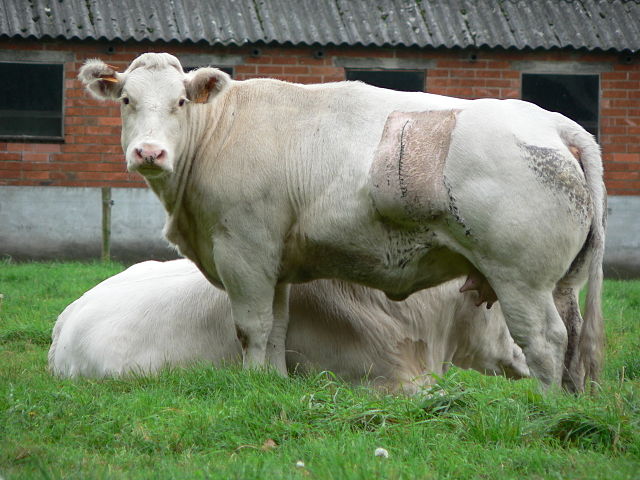Robert Bakewell (agriculturalist)
Robert Bakewell was an English agriculturalist, now recognized as one of the most important figures in the British Agricultural Revolution. In addition to work in agronomy, Bakewell is particularly notable as the first to implement systematic selective breeding of livestock. His advancements not only led to specific improvements in sheep, cattle and horses, but contributed to general knowledge of artificial selection.
Robert Bakewell
Selective breeding is the process by which humans use animal breeding and plant breeding to selectively develop particular phenotypic traits (characteristics) by choosing which typically animal or plant males and females will sexually reproduce and have offspring together. Domesticated animals are known as breeds, normally bred by a professional breeder, while domesticated plants are known as varieties, cultigens, cultivars, or breeds. Two purebred animals of different breeds produce a crossbreed, and crossbred plants are called hybrids. Flowers, vegetables and fruit-trees may be bred by amateurs and commercial or non-commercial professionals: major crops are usually the provenance of the professionals.
A Belgian Blue cow. The defect in the breed's myostatin gene is maintained through linebreeding and is responsible for its accelerated lean muscle growth.
This Chihuahua mix and Great Dane shows the wide range of dog breed sizes created using selective breeding.
Selective breeding transformed teosinte's few fruitcases (left) into modern maize's rows of exposed kernels (right).
Researchers at the USDA have selectively bred carrots with a variety of colors.





